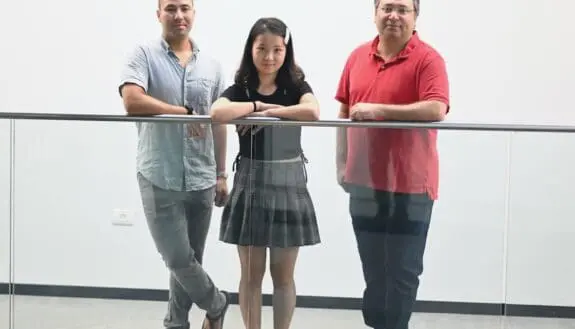Joshua Grolman, assistant professor in the Faculty of Materials Science and Engineering at the Technion, is advancing research that draws inspiration from the human body, which can often detect force even before it inflicts damage — through bruising and the sensation of pain. His laboratory aims to afford synthetic materials with the same capability, creating a built-in alarm system that protects us from harm. From engineering drought-resistant roots, to detecting pre-term birth, to building safer airplanes, his group aims to use mechanochemistry for a safer future.
Their new technology, called Dip-conjugation, is based on mechanophores — molecular units that produce chemical or physical signals when subjected to structural changes, such as pressure or stretching. Measuring these signals provides information about the state of the material, which is significant for various biological processes that could not be monitored until now. Dip-conjugation is applicable to both synthetic and natural materials.
Prof. Grolman received his B.Sc. in Biochemistry from the University of Massachusetts at Amherst in 2011 and his Ph.D. in Materials Science and Engineering from the University of Illinois at Urbana-Champaign in 2016. He then completed a postdoctoral fellowship at the Wyss Institute at Harvard Medical School.



